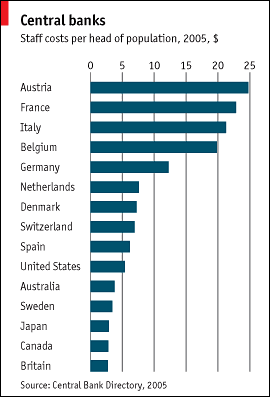A list of white elephants
The term was coined after New York Giants manager John McGraw told the press that Philadelphia businessman Benjamin Shibe had "bought himself a white elephant" by acquiring the Philadelphia Athletics baseball team in 1901, A's manager Connie Mack selected the elephant as the team symbol and mascot. The team is occasionally referred to as the White Elephants.
Other examples include:
- Aircraft:
- Concorde, a supersonic transport built by Aérospatiale and BAC, intended to allow high-speed intercontinental travel. Only fourteen examples saw service, though development costs were to be amortized over hundreds of units.
- Bristol Brabazon, an airliner built by the Bristol Aeroplane Company in 1949 to fly a large number of passengers on transatlantic routes from England to the United States.
- The U.S. Space Shuttle is also considered an example of a white elephant, as its continued existence is debated versus other forms of space transportation, which are thought by some to be more reliable and affordable.
- The Hughes H-4 Hercules, or "Spruce Goose," was often called Howard Hughes's white elephant before and during Senate War Investigating Committee
- Railway:
- The fully automated North East Line and Bukit Panjang LRT Line struggle to break even by their operators.
- Structures and engineering projects:
- Kansai International Airport, located on an artificial island in Osaka Bay, south of Osaka, Japan, is considered an example of a white elephant, as it was constructed largely as a matter of pride, and though at a fraction of nominal capacity, is being doubled in size.
- Montréal-Mirabel International Airport, a large airport located in Mirabel, Quebec, near Montréal.
- Superconducting Super Collider (or SSC), a large particle accelerator which was being constructed in Texas. Billions of dollars had been spent on the project by the time of cancellation, and the project termination itself cost hundreds of millions of dollars.
- Three Gorges Dam, a monumental project to bring hydroelectric power to the Yangtze River basin in China, beset with construction and environmental issues.
- World Trade Center México, a building complex located in Mexico City, Mexico, a building and complex that never really performed their intended functions and were known as a white elephant which eventually bankrupted their owners without ever being finished.
- Technology:
- Intel's IA-64 (better known as Itanium) (semiconductor architecture), which cost billions of dollars to develop, now relegated to a niche role in the computer industry. See also Itanic.
- Nautical:
- SS Great Eastern, a ship designed by Isambard Kingdom Brunel. She was the largest ship ever built at the time of her launch, and had the capacity to carry 4,000 passengers around the world without refuelling.
